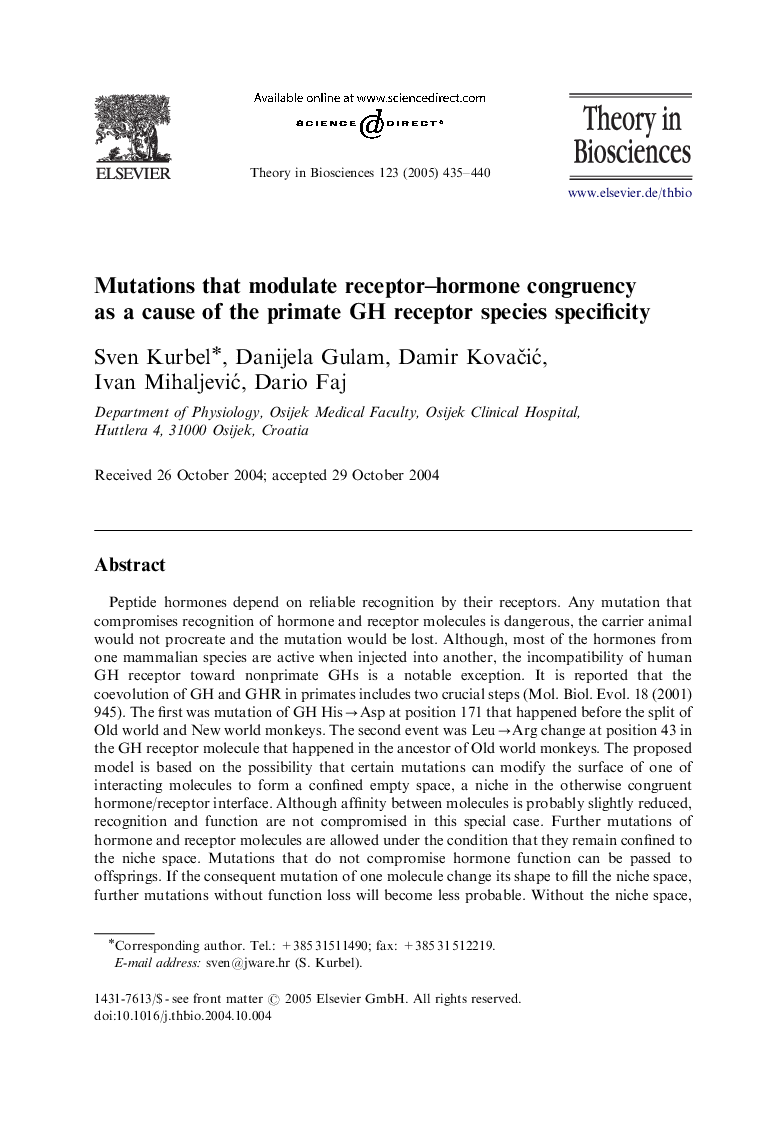| Article ID | Journal | Published Year | Pages | File Type |
|---|---|---|---|---|
| 9471793 | Theory in Biosciences | 2005 | 6 Pages |
Abstract
Peptide hormones depend on reliable recognition by their receptors. Any mutation that compromises recognition of hormone and receptor molecules is dangerous, the carrier animal would not procreate and the mutation would be lost. Although, most of the hormones from one mammalian species are active when injected into another, the incompatibility of human GH receptor toward nonprimate GHs is a notable exception. It is reported that the coevolution of GH and GHR in primates includes two crucial steps (Mol. Biol. Evol. 18 (2001) 945). The first was mutation of GH HisâAsp at position 171 that happened before the split of Old world and New world monkeys. The second event was LeuâArg change at position 43 in the GH receptor molecule that happened in the ancestor of Old world monkeys. The proposed model is based on the possibility that certain mutations can modify the surface of one of interacting molecules to form a confined empty space, a niche in the otherwise congruent hormone/receptor interface. Although affinity between molecules is probably slightly reduced, recognition and function are not compromised in this special case. Further mutations of hormone and receptor molecules are allowed under the condition that they remain confined to the niche space. Mutations that do not compromise hormone function can be passed to offsprings. If the consequent mutation of one molecule change its shape to fill the niche space, further mutations without function loss will become less probable. Without the niche space, the phase of fast evolution is closed and both genes become conserved. In this setting, accumulated mutations before the niche closing mutation are the cause of species specificity. To become a dominant variety, carrier animals must possess survival advantage in comparison to the carriers of other less advantageous mutations.
Related Topics
Physical Sciences and Engineering
Mathematics
Modelling and Simulation
Authors
Sven Kurbel, Danijela Gulam, Damir KovaÄiÄ, Ivan MihaljeviÄ, Dario Faj,
